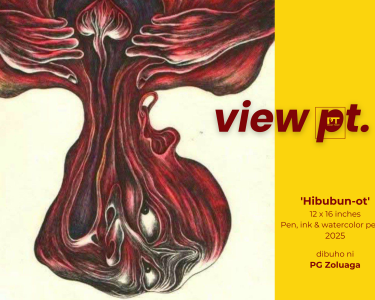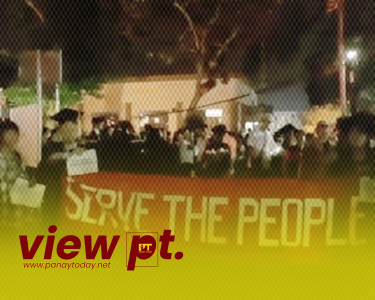OPINION | Josiah David Quising
The recent incident involving Ms. Cybelle Hembra, a graduate of West Visayas State University (WVSU), presents a troubling case of institutional overreach and disregard for fundamental rights. Ms. Hembra was reportedly denied entry to her graduation ceremony at the Iloilo Convention Center on account of her footwear, which school authorities deemed noncompliant with the university’s dress code.
The facts are straightforward. WVSU required graduates to wear “closed shoes.” According to Ms. Hembra’s account and accompanying photographs, the footwear she wore fell within this requirement. Yet the university administration proceeded to bar her from what should have been a celebratory and affirming academic milestone. She was eventually allowed to enter after she removed the straps of her shoes.
However, whether her shoes were compliant or not is irrelevant. The core issue remains to be the policy itself and the manner it was enforced: unreasonable, arbitrary, and disproportionate.
Freedom of expression includes shoes and clothing.
The Philippine Constitution, under Article III, Section 4, guarantees the right to freedom of speech and expression. No less than Direk Lino Brocka fought for the inclusion of the word “expression” in the Free Speech clause to make sure that the freedom also includes non-verbal presentations.
Jurisprudence has long held that this right extends beyond verbal communication and includes symbolic and nonverbal forms of expression. In Davao City Water District v. Aranjuez (G.R. No. 194192), the Supreme Court recognized that clothing, specifically statement shirts worn in protest, may constitute protected speech.
This principle applies with equal force to students. The Education Act of 1982, particularly Section 9(7), recognizes the right of students to express themselves, a right that necessarily includes forms of personal attire. Ms. Hembra’s choice of footwear did not constitute disruption, obscenity, or incitement to disorder. It was a legitimate act of harmless self-expression, and one that is protected by no less than our Constitution, regardless of how trivial it may seem.
More than footwear, the issue concerns fundamental human rights.
This incident is not merely about footwear. It is about the extent to which an educational institution may intrude into the personal liberties of its students under the guise of administrative regulation. WVSU’s strict implementation of its dress code, and its choice to punish a graduating student for a minor and highly contestable infraction, is not only excessive — it is a troubling assertion of arbitrary control over individual autonomy.
Public educational institutions are bound not only by their internal rules, but by constitutional guarantees. Any policy that restricts a fundamental freedom must meet the threshold of necessity, reasonableness, and proportionality. The enforcement of WVSU’s dress code fails to meet these standards, making its policy unconstitutional.
A Disproportionate Sanction
Even assuming that WVSU had the legal authority to implement its policy, the manner in which it was enforced, specifically denying a student access to her graduation ceremony without due process, is plainly disproportionate.
The Supreme Court, in Non v. Dames II (G.R. No. 89317), clarified that the relationship between a student and an educational institution is not an ordinary contractual one. It is imbued with public interest and governed by constitutional protections. The Court further held that student rights exist from enrollment through graduation, and that disciplinary actions must conform to principles of due process. Thus, graduation is not just a privilege. It is a contractual right.
In this context, WVSU’s or at least its staff’s decision to summarily bar Ms. Hembra from her graduation, even if she was eventually allowed to enter after she removed part of her shoe, without adequate notice or opportunity to be heard, constitutes not only a violation of her rights but a breach of the university’s own legal obligations. The act itself, being public and punitive, was also deeply humiliating for her and her family, and thus cannot be justified by reference to a vague or rigid dress code.
Excellence without compassion is a soulless pursuit.
Allowing this incident to pass without scrutiny sets a dangerous precedent: that educational institutions may override constitutional rights in pursuit of superficial conformity.
WVSU’s slogan claims that “Excellence is a Tradition.” But excellence must not be pursued at the expense of violating established constitutional rights. Insisting on uniformity devoid of context and reason undermines the very purpose of education. How can one insist on discipline when they themselves are not disciplined enough to respect the legal rights of students?
To recall the words of the Supreme Court in Non v. Dames:
“The student does not shed his constitutionally protected rights at the schoolgate… Academic freedom is not a ground for denying students’ rights.”
WVSU, and all educational institutions, must be reminded that in shaping minds, they must also uphold rights for there is no true excellence in repression./PT





